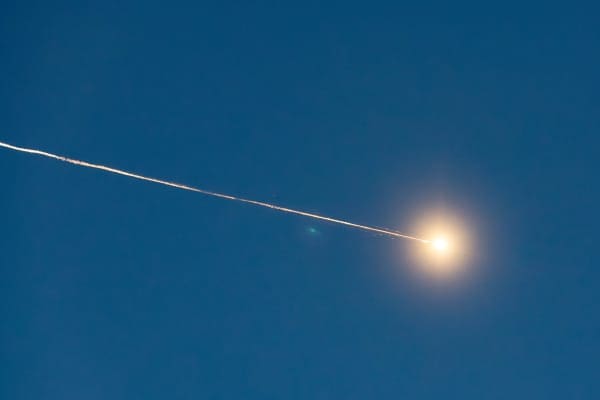Suddenly, a trail of smoke spiraled up into the clear blue morning sky. Alarm systems wailed across Jerusalem, rousing inhabitants from their quiet routines into a state of alert. The cause of this statewide anxiety was an incoming missile, fortuitously detected by an Israeli missile defense system. This was no ordinary missile, it was a ballistic weapon launched by the Houthi rebel movement in Yemen, an unprecedented 1,200 miles away. Only a split second’s interception by the Israeli Defense Forces (IDF) saved the ancient city from impending catastrophe. Today, we journey to that escalatory crossroads, to explore the knock at death’s door – Jerusalem’s close call: How the IDF downed a Houthi missile.
The Israeli Missile Defense System
Israel has one of the world’s most advanced missile defense systems. Its four-tiered protective shield includes the Iron Dome, David’s Sling, Arrow II, and Arrow III systems. On the fateful day, the Arrow III system notably sprang into action. Developed to intercept long-range missiles at high altitudes, it essentially stops warheads from raining down on the nation’s ground. The missile produced by Houthis, expected to hit Jerusalem, a significant distance from its launchpad, showed the rebels’ technological advancements and marked an elevation in the conflict’s intensity, making the Arrow III’s successful interception paramount.
The Ascendancy of Houthi Rebel’s Military Prowess
A closer scrutiny of this event begs a deviation to Yemen, the birthplace of the missile. Yemen is gripped by a brutal conflict pitting the Houthis against a Saudi-led coalition supported by the U.S. and other western allies. Over years of war, the Houthi rebels have increasingly become formidable foes. They have demonstrated the capacity to launch missiles targeting significant distances, like the attempted Jerusalem strike. The missile launch signals the rebels’ military advancements posing a new level of security challenges for Israel and the region.
Consequences of the Intercepted Houthi Missile
The successful interception of the Houthi missile over Jerusalem was a significant victory for the Israel Defense Forces and a testament to the efficacy of their missile defense systems. However, it also underscored escalating tensions and set alarm bells ringing across geopolitical landscapes. This intimate encounter with an incoming missile –produced by a rebel group operating over a thousand miles away– highlighted the vast reach of the Houthi’s military capability and invoked fresh concerns about the deepening conflict in the Middle East.
Moreover, Israel’s public confirmation of the interception event brings to light the strategic messaging involved. It showcases Israeli military might, bolstering national defense morale while serving as a stern warning to the Houthi rebels and their Iranian allies.
A Wake-Up Call for Global Security Measures
The alarming awakening served by the Houthi missile also echoed loudly in international corridors. It pointed at gaping loopholes in global security mechanisms and underscored the urgent need for an enhanced defense framework. The event has spurred nations to renew focus on their defense mechanisms and construct more integrated apparatus to combat such escalating threats.
While the story of Jerusalem’s close call with a Houthi missile marks a victorious moment in Israel’s defense history, it also serves to remind us of the lurking threat of long-range warfare – a chilling reality in today’s volatile world. As the tale underscores, it takes but a moment for a peaceful morning sky to turn into a battlefield, which is why vigilance and evolution of defense mechanisms can never be overstressed.





